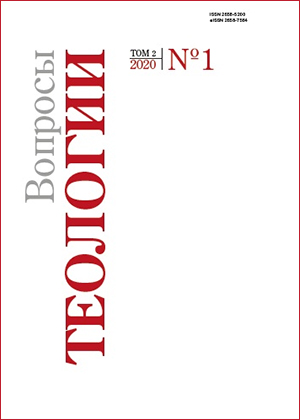On the interpretation of Qoh 3:10–11
DOI:
https://doi.org/10.21638/spbu28.2020.101Abstract
The article deals with some possible variants of translation and analysis of one of the most difficult passages in point of interpretation of the Book of Qoheleth (Ecclesiastes) — Qoh 3:10–11. The author tries to show that this passage holds the key to revealing the deep essence of the whole theological-anthropological concept of this biblical work, as well as the principles of its epistemology and cognitive methodology. Particular attention is paid to identifying possible options for the interpretation of the notions hā-ʻōlām и lēḇ in Qoh 3:10–11. According to the author, the first term can be interpreted in Qoh 3:10–11 as “the Universe eternity” or “duration” (in Bergson’s understanding of this notion as applied to human consciousness and the Universe), and the second — as “mind” or “consciousness”. The author analyzes possible interpretations of the phrase mib-bǝlî ʼăšer lōʼ in Qoh 3:11bα (found nowhere else in the Bible), which is of fundamental importance for the understanding of epistemic concept of Qoheleth. The author of the article believes that the passage of Qoh 3:10–11 could be interpreted very optimistic in connection with the possibilities of human cognition: for the rational spirit of the righteous and the sage — it is the everlasting process of cognition of the universe, cognition carried out by them as if from the perspective of eternity.
Keywords:
Bible, Book of Qoheleth, hā-ʻōlām in the Bible, Qoheleth’s theology, Qoheleth’s anthropology, Qoheleth’s epistemology
Downloads
References
Sources
References
Downloads
Published
Issue
Section
License
Articles of "Issues of Theology" are open access distributed under the terms of the License Agreement with Saint Petersburg State University, which permits to the authors unrestricted distribution and self-archiving free of charge.




